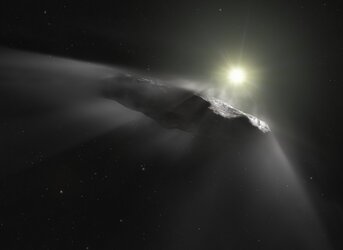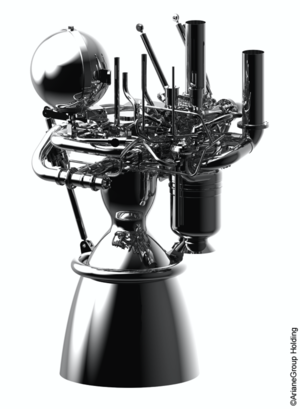From Concept to Launch: University Teams Fly Experiments on Sounding Rockets
From 3–15 March 2025, 74 university students travelled to Esrange Space Center in northern Sweden to launch their experiments onboard two sounding rockets, REXUS 33 and REXUS 34, as part of the Swedish-German REXUS/BEXUS programme. The students represented eight experiment teams from universities in Germany, Romania, Hungary, and Sweden.

The teams were selected to participate in the programme in 2023 and spent the following 18 months developing their experiments—from initial concepts to fully integrated flight hardware. Throughout this process, the student teams received guidance and support from experts of the Swedish National Space Agency (SNSA), the German Aerospace Center (DLR), the European Space Agency (ESA), the Swedish Space Corporation (SSC), the Center of Applied Space Technology and Microgravity (ZARM), and DLR’s Mobile Rocket Base (MORABA).

During the launch campaign, the teams conducted final preparations, including rigorous system checks and last-minute adjustments to ensure their experiments were ready for flight. Some teams encountered technical challenges, ranging from mechanical and electrical issues to software troubleshooting, but their persistence and teamwork enabled them to resolve the problems and proceed with the campaign.
On 11 March, at 10:15 AM CET, the first rocket, REXUS 33, successfully lifted off, reaching an apogee of approximately 78 km. It carried three student experiments:

- PERSIS (Photopolymeric Extrusion of Reinforced Structures In Space) from the Munich University of Applied Sciences, Germany.
- SOLDERx (Soldering Operations in Low-Gravity Environments for Research and Exploration) from the University Politehnica of Bucharest, Romania.
- WOBBLE2 (Weightless Observation of Fluid Behaviour with Berlin Liquid Guidance Experiment) from the Technical University of Berlin, Germany.

Two days later, on 13 March, at 06:23 AM CET, the second rocket, REXUS 34, was launched. However, the mission encountered a non-nominal flight. Despite this, the student teams are now focusing on analysing their data and evaluating the results of their experiments.
The experiments on board REXUS 34 were the following:
- FENRIR (Free fall Experiment uNit for Reduced-gravity Investigations and Research) from the Luleå University of Technology, Sweden.
- FINIX (Ferrofluid Implementations for Next GeneratIon Exploration) from the Stuttgart University, Germany.
- SHAMA (Sustainable Heat protective Ablative Material) from the Dresden University of Technology, Germany.
- SLOSH (Sloshing Experiment) from the Augsburg University, Germany.
- TELLER (Three-axis Experimental Low-altitude Laboratory for Exploring Radiation) from the Budapest University of Technology and Economics, Hungary.

On the final day of the campaign, all teams presented their preliminary results in a post-flight meeting. Now back home, the students will dive deep into their data and prepare a final reporting of their findings.
Each year, two rockets and two balloons are launched within the REXUS/BEXUS programme, carrying up to 20 student-built experiments. A new call for proposals will open in June 2025, offering the next generation of university students an opportunity to design and launch their own experiments. More information on the application process can be found here: https://www.esa.int/Education/Rexus_Bexus/How_to_apply
The REXUS/BEXUS programme is realised under a bilateral Agency Agreement between the German Aerospace Center (DLR) and the Swedish National Space Agency (SNSA). The Swedish share of the payload has been made available to students from other European countries through a collaboration with the European Space Agency (ESA). EuroLaunch, a cooperation between the Swedish Space Corporation (SSC) and the Mobile Rocket Base (MORABA) of DLR, is responsible for the campaign management and operations of the launch vehicles. Experts from DLR, SSC, ZARM and ESA provide technical support to the student teams throughout the project. REXUS and BEXUS are launched from SSC, Esrange Space Center in northern Sweden.















 Germany
Germany
 Austria
Austria
 Belgium
Belgium
 Denmark
Denmark
 Spain
Spain
 Estonia
Estonia
 Finland
Finland
 France
France
 Greece
Greece
 Hungary
Hungary
 Ireland
Ireland
 Italy
Italy
 Luxembourg
Luxembourg
 Norway
Norway
 The Netherlands
The Netherlands
 Poland
Poland
 Portugal
Portugal
 Czechia
Czechia
 Romania
Romania
 United Kingdom
United Kingdom
 Slovenia
Slovenia
 Sweden
Sweden
 Switzerland
Switzerland



























